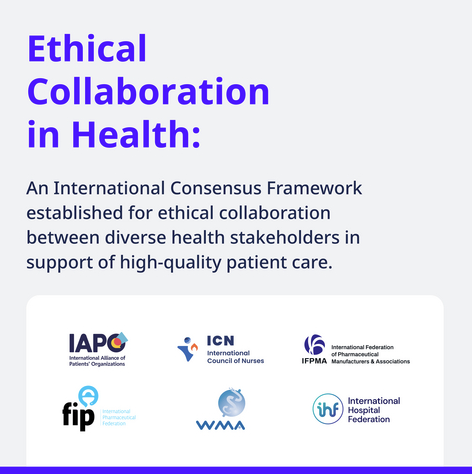Geneva– Six major international healthcare organizations representing patients, medical professionals, and the pharmaceutical industry have adopted a unified ethical principle focused on the responsible use of digital health data and artificial intelligence (AI), marking a significant step in global health governance.
The new guideline becomes the fifth principle under the International Consensus Framework for Ethical Collaboration (ICF), a voluntary agreement first launched in 2014 to promote ethical standards across healthcare sectors. The addition reflects growing concerns over data privacy, patient autonomy, and the ethical use of AI technologies in medicine.
The principle emphasizes autonomy, data stewardship, and shared accountability—highlighting the need to protect patient rights as technology becomes more deeply embedded in healthcare systems. It joins previous ICF commitments to transparency, ethical research, and prioritizing patient needs.
“Ethics must evolve alongside innovation,” said Ronald Lavater, CEO of the International Hospital Federation. “No single entity can navigate the challenges of digital health alone—this framework supports collective, responsible action.”
Patient advocates also welcomed the addition. “This is a major step toward protecting patient rights in the digital age,” said Dani Mothci, CEO of the International Alliance of Patients’ Organizations. “Ethical use of health data must be grounded in real-world patient experiences.”
The principle has backing from medical, pharmaceutical, and nursing associations, including the World Medical Association, International Council of Nurses, and International Pharmaceutical Federation. Each emphasized that ethical collaboration is essential as AI tools are integrated into everything from diagnostics to treatment decisions.
The updated ICF now stands as a rare consensus among often siloed stakeholders, aiming to ensure that rapid technological advances do not outpace the ethical safeguards required to maintain trust and quality in global health care.


